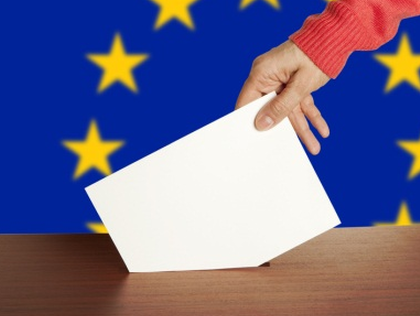
The House of Commons will vote today on whether to grant the British people an in/out referendum on membership of the European Union. The bill is being brought in by the Conservative Party Vice Chairman Bob Neill MP as a private members bill as it does not have the support of the Liberal Democrats and cannot therefore be given government time.
This is the second time the bill has been debated in the Commons, last time it was defeated in the House of Lords after opposition from both Labour and Liberal Democrat peers. Like last time other parties have boycotted the debate in the Commons to avoid being accused of opposing the will of the people.
They hope to rely on there being insufficient time in the House of Lords for it to pass. But the Conservatives were determined to bring it in anyway as a way of demonstrating their commitment to a referendum in 2017, after David Cameron has completed his attempt to renegotiate the terms of British membership.
In his speech Bob Neill remained neutral on EU membership, choosing instead to focus on the British people’s right to have a say on the subject. In his speech he said: “This bill, Mr Deputy Speaker, is about choice, it’s about giving the British people a choice on something that’s fundamental to our constitutional arrangements and that’s fundamental to our future.
“It’s a straight forward and a simple bill because the proposition of choice and a democratic fairness to our people is a simple one that everyone in this house ought to be able to grasp. It is not a bill which is about the future of our relationship with the European Union, it’s not a bill about whether we should in the long term stay in the European Union or remain (sic).
“It’s a bill about giving the people of this country a choice and that’s no laughing matter for anybody. That choice is important because the future of our arrangements with our neighbours require legitimacy and require consent, it is some been forty years since that consent was last sought.
“Much has changed since and it’s fair and reasonable for people to be given that choice again.”
The boycott by other parties coupled with a three line whip of Conservatives will guarantee it passes today. In order to ensure all Conservative MPs were on time for the debate’s start at 9.30am the Prime Minister hosted a breakfast in Downing Street for them so they could all go over to the House together.
Robert Halfon MP (Con, Harlow) claimed the referendum “is all about trust” and will prove the Conservatives “mean business on the European Union and the in and out referendum”. He also said the Conservatives had already proved they meant business on the EU budget cut. Bob Neill responded by saying it was time for opponents of the referendum “to put up or shut up” rather than using parliamentary procedure to stop the referendum.
Lee Scott (Con, Ilford North) said that any MP who who attempted to use proceedure to stop the bill were unworthy of representing the public in the House of Commons. This lead John Redwood (Con, Wokingham) to ask why no Liberal Democrat MPs were in the chamber, despite their earlier pledge to give the public a referendum. They have now u-turned on this policy.
One of the few Labour MPs to be in the chamber Kate Hoey (Lab, Vauxhall) who is a euro-sceptic said she could not understand why anyone would oppose the bill. She said “I think it is a question of trust… I don’t understand why all political parties have let the public down over a referendum”.
She went on to say that her support for a referendum made her a minority in the Labour Parliamentary Party but not amongst Labour voters and hoped the party would put support for a referendum in their manifesto. Hoey also questioned whether David Cameron’s negotiation on the return of powers were unlikely to succeed.
There was some discussion in the debate about how parliamentary rules could be exploited to take the bill through despite the deliberate attempts to thwart it by Labour. Sir Roger Gale (Con, North Thanet) made a point of order asking about a rarely used right to set-up two standing committees instead of one. This would enable the second to push the bill through even if the first one is being deliberately slow. The Deputy Speaker confirmed this was possible.
The question is “Should Britain be a member of the European Union?”. The bill was pass by 283 to zero, with the Conservatives having to put up tellers for the no side so that the vote could be formally recorded. When the result was called a MP said “where’s the rest?” in reference to there being more Conservative MPs than voted yes. The Deputy Speaker responded “well there is a by-election on”.

COMMENTS
Please let us know if you're having issues with commenting.